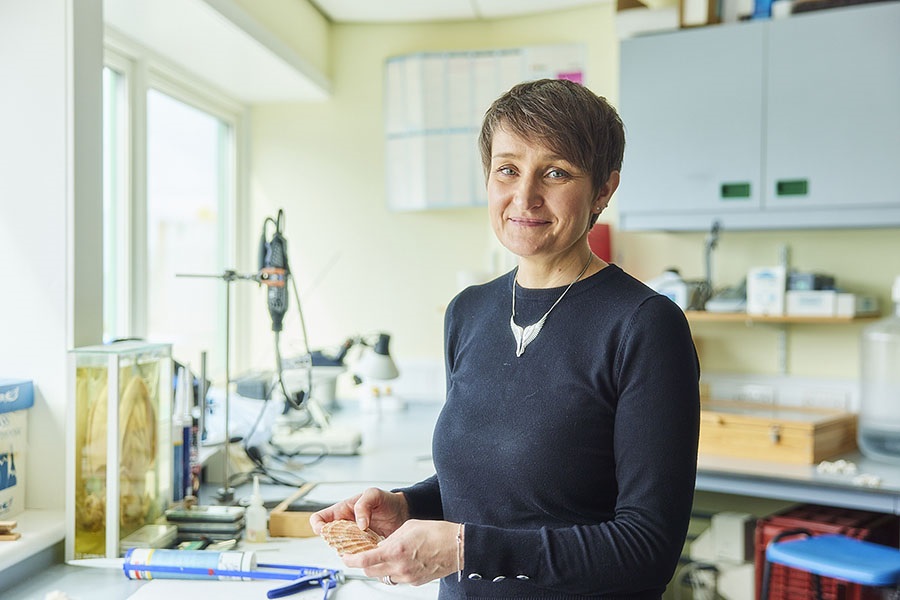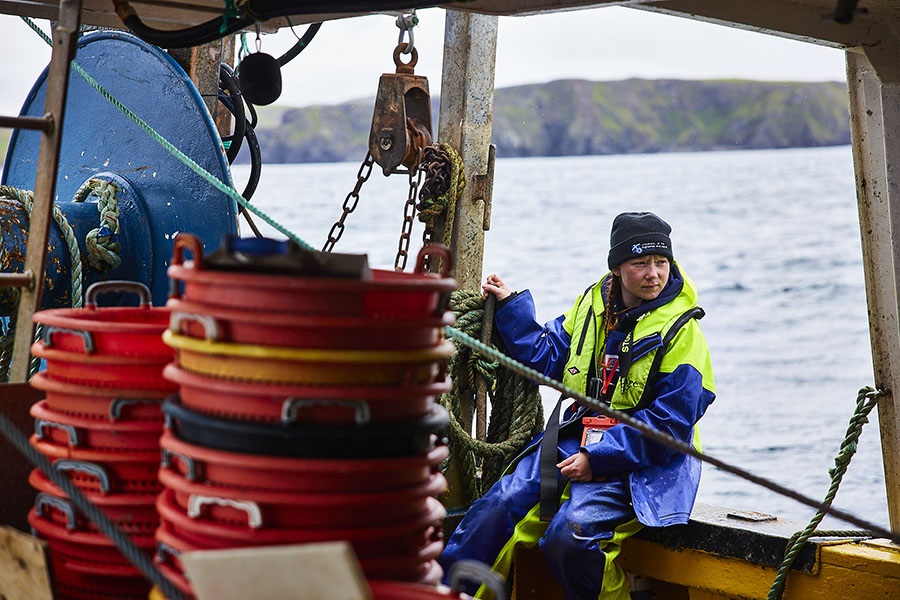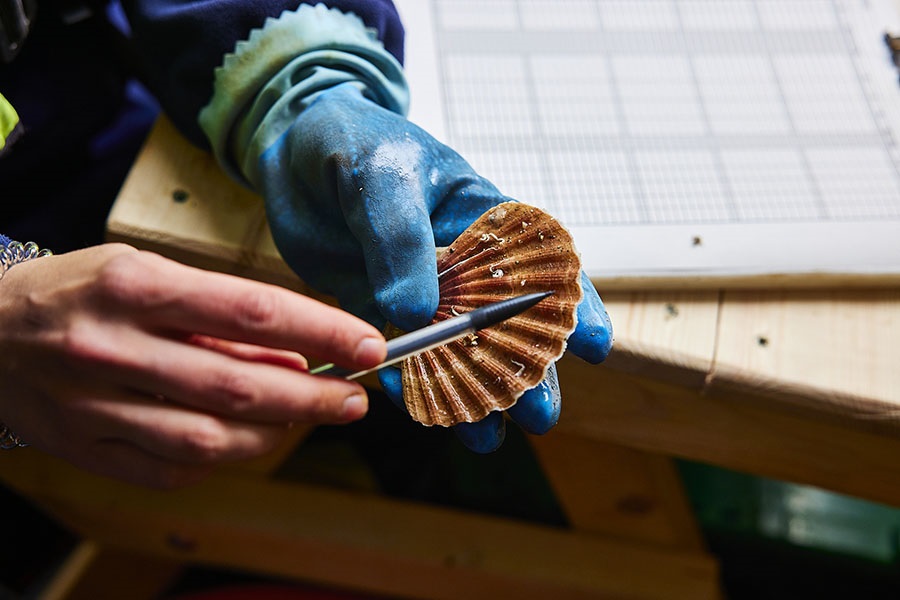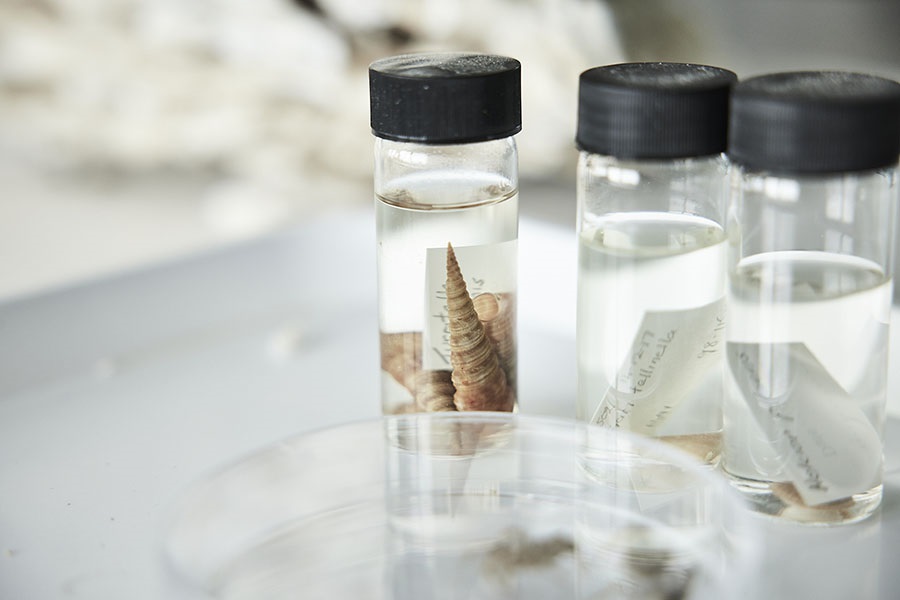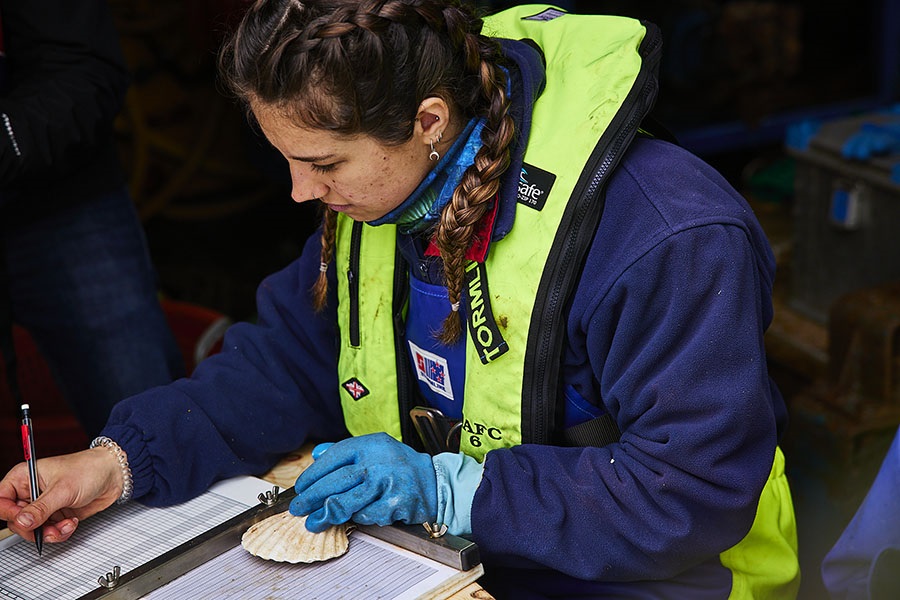Sustainable fishing requires the support, dedicated work and expertise of experienced marine researchers and scientists. Fisheries scientists draw on lots of different disciplines, like marine biology, conservation, statistics, ecology and more, to understand and manage fisheries, putting rules in place to help fish stocks and biodiversity thrive and fishers to maintain their livelihoods.
The need for data
Sustainable fishing is all about numbers. Stock assessments, the process of collecting, analysing, and reporting on the state of a stock of fish and estimating how many can be caught without threatening the species, are carried out regularly in MSC certified fisheries.
The MSC certified Shetland scallop and brown crab fishery and its managing body, the Scottish Shellfish Management Organisation (SSMO), are advised by a group of independent, world-leading shellfish experts at the University of the Highlands and Islands (UHI) in Scalloway, Shetland. This (mostly) all-female team, led by Dr Beth Mouat, has 30 years of Shetland marine environment data and regularly analyse stocks to inform the management of the fishery, ensuring that catch limits are in place and crab and scallop numbers remain stable and healthy.
Biological data (information about the species) informs stock assessments, too. The UHI team in Shetland visit vessels and local processing centres to measure and record the sizes of the shellfish caught by fishermen, so they can provide recommendations to the SSMO, helping them to know how many juvenile fish (or shellfish) are being caught and how many are being left back in the sea to reproduce. This all helps to build a better picture of how healthy stocks of scallop and crab are in the area, if adjustments to fishing levels need to be made, and importantly, if the fishery is meeting the requirements of the MSC’s strict Fisheries Standard for sustainability. The SSMO scallop and brown crab fishery has continued to meet the MSC standard for 10 years now.
Hear from Beth and the team at UHI
How scientists help fisheries protect our ocean
Safeguarding endangered, threatened and protected (ETP) species
Fishing sustainably also means minimising the impact of fishing on the wider ocean ecosystem. Scientists identify and monitor species that come into contact with specific fisheries, and provide crucial data that can inform fishing regulations.
As part of the MSC certification, Beth and her team of researchers in Shetland survey areas in the scallop and brown crab fishery where they predict vulnerable species to be, like horse mussel beds, seagrass, and coral, and work with the fishery to voluntarily designate areas to be closed off to fishing activity. Some of the species that exist here form habitats on the seabed that are biodiversity hotspots, supporting other creatures that live in and among them, so they are incredibly important for the local and wider marine environment. Prohibiting fishing activity around them allows these species and marine features to remain a healthy and productive element of the surrounding ecosystem.
The team at the UHI also run an important database that logs ETP species interactions recorded by fishermen, including species like skates and rays. Fishers are equipped with wheelhouse cards that tell them exactly what to do if they encounter these species, and recorded interactions help to inform wider environmental and ecosystem management plans and area closures.
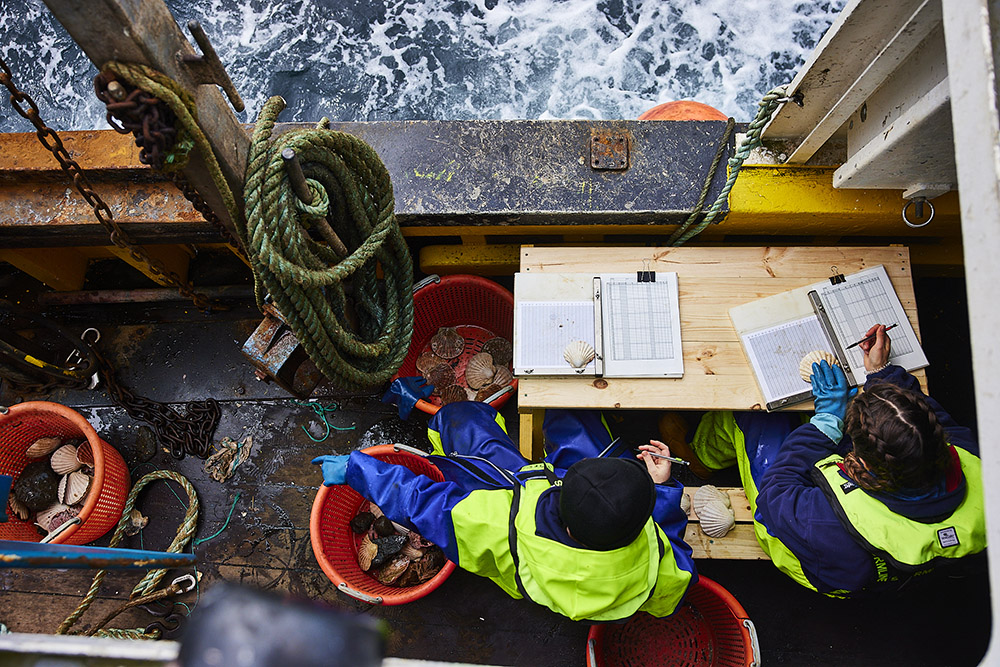
Working with fishing communities
Giving fishing communities the right tools and guidance to protect our ocean is a key part of being a fisheries scientist. Scallop and brown crab fishermen in Shetland are guided by the research team on where to fish, and they operate within a six-mile limit that helps to keep stocks abundant in the waters around Shetland as part of a national jurisdiction. A night-time curfew is also in place, as well as a license policy, meaning no one can fish without being registered. This keeps the fishery uncrowded and well organised, meaning there are lots of shellfish to go round and stocks are given plenty of time to grow and replenish.
Discover more fishing heroes
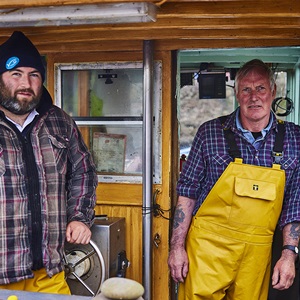
Shetland brown crab
The only brown crab fishery certified as sustainable in the world.
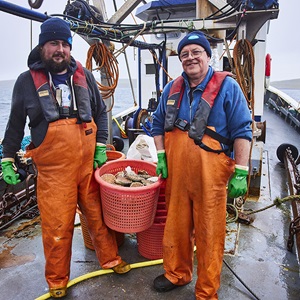
Shetland scallops
How a whole community comes together to ensure the future of scallops.
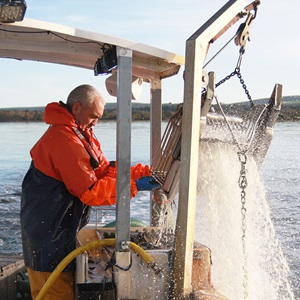
Poole Harbour
The sustainable journey of the south-coast clam and cockle fishery.


